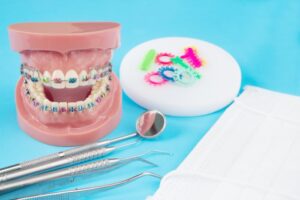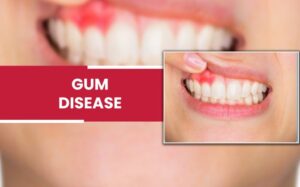Cheek implants, the cosmetic wizardry that can turn flat faces into sculpted masterpieces, are all the rage these days. Imagine walking into a room, and your cheeks are so perfectly contoured that they make the Mona Lisa look like she forgot to put on makeup! These little wonders come in various shapes and sizes, designed to add that delightful dash of definition to your face, making you look like you just stepped off a magazine cover.
The procedure involves some preparation, a sprinkle of medical magic, and a recovery period that may have you looking like a chipmunk for a few days. But fear not, for the end result is often worth the temporary fluffiness. So, let’s dive into the fascinating world of cheek implants and discover how they can elevate not just your cheekbones but your entire aesthetic game!
Cheek Implants Overview

Cheek implants are like the cherry on top of cosmetic surgery, giving your face that enviable lift and youthful contour that can make you feel like a supermodel. Whether you’re looking to enhance your cheekbones for a high-fashion look or simply want to add a touch of volume, cheek implants can help you achieve that goal, turning the ordinary into the extraordinary! The main purpose of cheek implants is to augment the facial structure, creating a more balanced and aesthetically pleasing appearance.
They can add fullness to flat cheeks, enhance facial contours, and even provide a more youthful look, as defined cheekbones are often associated with youth and vitality. Cheek implants are often made from materials like silicone, which is both safe and effective for body contouring.
Types of Cheek Implants
Before diving into the surgery, it’s essential to understand the different types of cheek implants available. Each type offers various shapes, sizes, and materials that cater to individual needs, ensuring that everyone can find their perfect fit. Here are the most notable types in the market:
- Silicone Implants: The most common type, silicone implants provide a natural feel and appearance, allowing for a seamless integration with the body. Their flexibility can mimic the natural bone structure of the face.
- Medpor Implants: Made of a porous material, Medpor implants promote tissue integration which can enhance stability, making them a favorite among some surgeons.
- Fat Grafting: While not a traditional implant, fat grafting involves using your own body fat to enhance the cheeks, providing a natural and biocompatible option for cheek enhancement.
- Custom Implants: For those looking for a truly unique solution, custom implants can be designed specifically for your facial structure, offering tailored enhancement.
Cheek Implant Surgery Procedure
Understanding the procedure can demystify the process of getting cheek implants. Preparing for surgery involves consultations, medical evaluations, and discussions about your aesthetic goals. Here’s how the journey typically goes:
1. Consultation
A thorough assessment with a qualified surgeon will help you discuss expectations, choose the right implant type, and ensure you’re a suitable candidate for the procedure.
2. Pre-Operative Instructions
You may be advised to avoid certain medications or supplements that could increase bleeding. Hydration and a healthy diet are also encouraged.
3. Anesthesia
On the day of surgery, a local or general anesthetic will be administered, ensuring you feel as relaxed as a cat napping in the sun.
4. Surgical Procedure
The surgeon makes incisions either inside the mouth or through the skin, creating a pocket for the implant to be placed. The implants are then secured, and incisions are closed.
5. Recovery
Post-surgery, you may experience swelling and bruising, but fear not! This is perfectly normal and will subside over time. Follow-up visits will help monitor your healing progress and adjust any post-operative care as needed.
“Beauty is about enhancing what you have. Let yourself shine through.”
Proper care and adherence to your surgeon’s post-operative instructions will ensure you recover smoothly and unveil those newly contoured cheekbones that will make heads turn!
Health Implications Related to Cheek Implants
When considering a cheek implant, it’s essential to peek behind the curtain of that glamorous Instagram filter and understand the health implications that come along for the ride. While the pursuit of high cheekbones might seem as innocent as a puppy in a sweater, the reality can be a little more complicated, much like trying to fit a square peg into a round hole.
Let’s dive into some of the health-related concerns that should tickle your curiosity before you leap into the world of cosmetic enhancement.
Potential Health Risks Associated with Cheek Implant Surgery
Cheek implant surgery, while often viewed as a ticket to the high cheekbone club, does come with a potential risk factor that could make you think twice. Risks can range from the mildly annoying to the downright dramatic. Here are some of the key health implications to be aware of:
- Infection: Just like that time you brought home a stray cat that turned out to be a scratching machine, infections can creep in unexpectedly. Post-surgery, the risk of infection looms, requiring vigilant care and possibly antibiotics.
- Implant Displacement: Think of cheek implants as those cheeky party guests who just won’t stay where they’re supposed to. Sometimes, they can shift position, leading to an uneven appearance that may require corrective surgery.
- Allergic Reactions: Certain materials used in implants can trigger allergic reactions, turning your quest for beauty into an itch-scratch-itch cycle that is as bothersome as a mosquito in your ear.
- Scarring: Surgical scars can be a bit like unwanted party favors. They may not be what you signed up for, but they’re often part of the package. Proper placement and care can minimize visibility.
“Cosmetic surgery, including cheek implants, is not just skin deep; it’s an adventure into the unknown that requires careful consideration.”
Relationship Between Cosmetic Surgery and Mental Health
The link between cosmetic surgery and mental health is as complex as deciphering a cat’s mood. For many, the decision to enhance one’s appearance stems from a desire for improved body image, which can significantly impact self-esteem.
- Boost in Confidence: Many individuals report a surge in confidence post-surgery, akin to finding the perfect outfit that fits just right. This newfound self-assurance can have ripple effects in various life aspects, from relationships to career advancements.
- Unrealistic Expectations: However, it’s crucial to remember that surgery isn’t a magic wand. Unrealistic expectations can lead to disappointment, much like expecting a unicorn at a horse show.
- Body Dysmorphic Disorder: In some cases, individuals may suffer from Body Dysmorphic Disorder, where the focus on perceived flaws can lead to a never-ending cycle of surgeries that don’t solve the underlying issues. This can resemble a hamster wheel—a lot of activity with no destination.
“A healthy body image is not just about looking good; it’s about feeling good inside and out.”
Post-Operative Care and Its Importance
Once you’ve taken the plunge and had your cheek implants, the journey doesn’t end there—oh no, my friend! In fact, it’s just the beginning of your post-operative saga. Proper care during recovery is crucial for both the aesthetic outcome and overall health.
- Follow-Up Appointments: Regular check-ins with your surgeon post-surgery are essential. Think of these as your health GPS guiding you on the road to recovery. Missing these can lead to detours you never wanted to take.
- Keeping It Clean: Just like your favorite pair of shoes, maintaining cleanliness around the surgical site is key. This means following care instructions to the letter to minimize infection risks.
- Managing Swelling: Swelling and bruising are as common post-surgery as unsolicited advice from family members. Ice packs and elevation can be your best friends during this phase.
- Activity Restrictions: Resisting the urge to leap back into your old routine is crucial. Avoid strenuous activities to allow your body to heal properly, or you might find yourself navigating a new world of complications.
“Post-operative care is not just a checklist; it’s your golden ticket to a successful recovery and fabulous cheekbones.”
Cheek Implants and Related Health Topics
Cheek implants may not only give your face a new lease on life but can also stir a pot of health-related conversations. It’s not all about aesthetics; there are some intriguing health implications that can arise from this cosmetic endeavor. From potential respiratory issues to the psychological impact on individuals with specific needs, let’s traverse this landscape with a sprinkle of humor and a dash of understanding.
Influence on Health Conditions
Recovering from cheek implants can be a journey that includes various health considerations. For individuals with asthma or other respiratory conditions, the recovery process may pose unique challenges. Post-surgery, patients are often instructed to avoid strenuous activities and environments that could exacerbate breathing difficulties. This is crucial as swelling can sometimes lead to increased pressure around the chest area, causing a bit of a “squeezed balloon” effect.
Here are some considerations to keep in mind:
- Swelling and Pressure: Recovery can lead to temporary swelling, which may induce a sensation of tightness in the throat, potentially affecting asthma sufferers.
- Medication Reactions: Pain management medications, while necessary, can sometimes trigger respiratory issues; hence, discussing alternatives with a doctor is vital.
- Environmental Factors: Dusty or smoky environments should be avoided during recovery to prevent any wheezy mishaps.
Understanding your body’s response to cosmetic surgery is essential, especially if you have pre-existing health conditions.
Impact on Individuals with Autism and Developmental Disabilities
When it comes to cosmetic surgery like cheek implants, the conversation extends beyond physical appearance. Individuals with autism and developmental disabilities may experience a range of effects—both positive and negative. While some may find increased self-esteem and confidence, others could face challenges in processing the changes. It’s essential for caregivers and families to assess how these procedures align with the individual’s emotional and psychological needs.
- Self-Perception: Enhanced physical appearance can lead to improved self-esteem for some, allowing them to embrace social interactions with renewed vigor.
- Change Anxiety: For others, dramatic physical changes might lead to anxiety, as they struggle with the transition and new identity.
- Communication of Needs: Clear conversations with healthcare providers about the potential impact of surgery can help in managing expectations and outcomes.
Every individual is unique, and their responses to cosmetic changes can vary widely.
Relationship Between Cosmetic Enhancements and Depression
It’s well-documented that cosmetic surgery can have implications for mental health. Cheek implants, while intended to enhance beauty, can also stir up a cocktail of emotions that range from sheer joy to unexpected sadness. The psychological effects of undergoing such procedures can be profound. Here’s how cheek implants might intertwine with depression:
- Expectation vs. Reality: Individuals often enter the procedure with high hopes, and if the results don’t meet their expectations, it can lead to feelings of disappointment and sadness.
- Social Media Pressure: The allure of ‘Instagram perfection’ can create unrealistic standards, making individuals feel inadequate post-surgery.
- Body Image Issues: While some may feel empowered, others might find that their self-image issues persist, or even worsen, after the procedure.
Cosmetic enhancements can be a double-edged sword, balancing confidence against the weight of societal expectations.
Wrap-Up

As we wrap up this cheeky exploration of cheek implants, it’s clear that these little enhancements can pack a powerful aesthetic punch. While they may make you look like a Hollywood star, it’s essential to weigh the potential risks and realities of cosmetic enhancements. Ultimately, cheek implants are not just about looking good but feeling good in your skin. So if you’re considering this transformative journey, remember: confidence is the best accessory, and a little sculpting might just be the ticket to flaunting your fabulous self!
FAQ Guide
What are cheek implants made of?
Cheek implants can be made from silicone, Medpor, or other biocompatible materials that safely integrate with your body.
How long does the cheek implant surgery take?
The surgery typically takes about 1 to 2 hours, depending on the complexity and the specific techniques used.
Will I have visible scarring after the procedure?
Scarring is usually minimal and can be hidden within the natural contours of the cheek or inside the mouth.
How soon can I return to normal activities after surgery?
Most people can resume light activities within a week, but it may take several weeks before you’re back to your normal routine.
Are there any age restrictions for getting cheek implants?
While there are no strict age limits, candidates should generally be over 18 and in good overall health to ensure optimal results.





